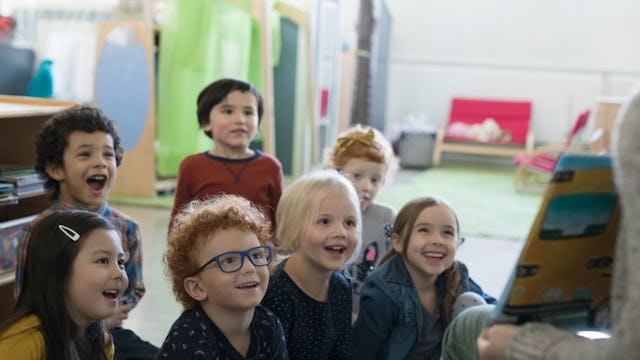New Research Shows Just How Important Preschool Is

As parents, we face no shortage of decisions that set the stage for our children’s futures, many of which must be made on a short notice. But by far, one of the most impactful of these are decisions related to their education. My son just turned three — a milestone that is accompanied by several potentially life-changing decisions about when he will start attending school.
Many parents, like me, were once unaware of the, often understated, benefits of preschool. Many first-time parents are completely unsure of how to navigate the early education system. That lack of knowledge leaves many parents unable to make informed decisions about early education options. It can be overwhelming. In our Midwest town, which has many military families and stay-at-home mothers, it’s not uncommon for parents to opt out of preschool entirely, viewing it as an unnecessary (or unaffordable) expense.
In our state, three is the earliest children can be enrolled in pre-school programs, and I was shocked to discover that my state was one of seven states that lacks any state preschool programs. By contrast, in the town I grew up in, preschool was free. But these days, in many states, preschool spots are limited and often expensive, with the only access provided through private entities (and perhaps very limited space in Head Start programs).
But new research from Duke University might mean it’s time for the seven states without formal preschool programs to get it together and allocate more funding to early education.
The Duke University researchers began with two main research questions. First, did each program continue to have a positive impact on math and reading test scores, decrease the likelihood of being placed in special education service, and reduce the probability of being a grade repeater? Second, did program impacts differ significantly across subgroups within the population, defined by maternal education, family income, and the child’s race?
Their findings joined the extensive body of data suggesting that preschool should be a non-negotiable aspect of our children’s formative years. After studying 1.5 million youth in North Carolina, they found that the benefits of attending preschool lasted for most of the children’s education, at a minimum to 8th grade and possibly even further.
Specifically, the benefits from attending preschool made students more prepared for reading, writing, and arithmetic than their non-preschooled peers.
As parents, we have to consider the comprehensive benefits offered by preschool and remember the pros go much further than getting good grades later in life. Attending programs that help prepare three- and four-year olds can yield many social benefits, as well.
Preschool programs can help children learn how to interact with other children in a collaborative fashion and help develop a more secure attachment to their parents by giving them the opportunity to spend some time away from home.
Not only can preschool help reinforce the importance of being able to follow instructions, it can provide caretakers with early clues into any social and educational issues their child might struggle with in the future.
While all but seven states have incorporated state preschool programs, a wide range of access barriers (distance, language needs, cost, and quality, to name a few) limit which families are enrolled in programs across the country. Recent data suggests only Vermont and D.C. have 50 or more percent of three and four-year olds enrolled in preschool programs. Most states hover around 20-30% enrollment.
We know the earlier we catch struggling students, the higher the likelihood they will have long-term success. Imagine how much better children with social and learning obstacles could perform during grade school if we took note of the early signs and used our resources to develop personalized interventions before they enrolled in the first grade.
While these benefits occur in different degrees for all children who take advantage of the opportunity to attend evidence-based curriculum, they seem to multiply for youth who come from disadvantaged financial and cultural backgrounds.
Research alone isn’t enough to improve education outcomes in the United States. We know that preschool is an immensely important factor in predicting outcomes for youths later in education. But much more progress must be made to make sure that we lift the access barriers that prevent students from having equal opportunity to attend effective, affordable, quality programs.
Ensuring that students have that access will require diligent resistance to anti-student policies being passed through the Department of Education. It will also likely mean saying no to the further privatizing of the education system and making sure all schools have equal access to adequate funding and resources. We already know marginalized students are the first to suffer.
It’s a long battle to bring equality to the education system, and we have along way to go. But equally accessible preschool would be a great start.
This article was originally published on